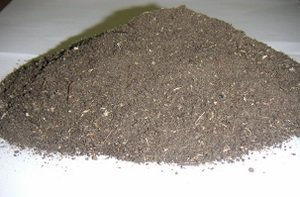Biologists of Kazan Federal University in collaboration with Finnish colleagues are creating suppressive compost fertilizing the soil and inhibiting fungoid diseases at the same time. This creation will let farms to avoid the use of fungicides which are widely used for the yield protection.
Fungicides are widely used in agriculture. However, apart from fungoid protection fungicides are often unfavorable for soil and plants. KFU scientists propose new solution: non-hazardous compost, which will protect plants together with fertilization. Hereby, compost is understood as fertilizer composing from organic substrates.
"Compost will consist of agricultural waste, such as animal dung, organic fraction of municipal waste, and so on. While fertilizing components' composition depends on the region where compost will be produced, fungoid inhibiting components remains the same", explains Polina Galizkaya, the manager of the project, the Associate Professor of the Institute of Ecology and Geography.

Even if the potential of compost in inhibiting of agricultural unsoundness was already described in scientific literature, there are still no technologies of their production. Obviously, Kazan and Helsinki scientists will become the pioneers.
"We have already set up the screening of organic waste in the chosen district of Tatarstan, estimated their suppressive characteristics, and subtracted a number of microorganisms preventing fungoid diseases. We are planning to use these microbes as a fungoid inherent complement to the compost. This technology is already working in laboratories. We are also working on the new option of the creation of the composts without bio additives. All the technologies will be patented", explains Polina Galizkaya.
The members of the project from KFU are planning to launch an experimental production of suppressive composts in 2016 together with "Agroholding", the industrial partner of the project. If the enterprise is successful, the big plant capable of covering the needs of agriculture of Tatarstan will be opened in two years.
According to the authors, this technology is one of the steps towards organic production, which is the aim of the most developed countries. The legal base, regulating the switch of agricultural production towards organic technologies is being developed in Russian Federation, and there is financial support at the primary stage of production.
This project is supported by the Russian government within Federal Targeted Programme in the Priority Areas of Development of the Russian Scientific and Technological Complex for 2014-2020.